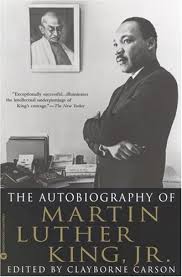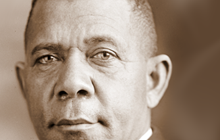One of the key concerns of this discussion is how to bring equality to groups who have been treated unfairly for generations. One offered solution is to “pay back” reparations for past inequalities. Ta-Nehisi Coates, a senior editor for The Atlantic, has reinvigorated this debate by recently writing on the subject. In the following interview with Bill Moyers, Ta-Nehisi gives his arguments for reparations.
Engaging with Coates’ thoughts, author Alan Noble offers his views in the following article. Alan Noble, PhD, is the co-founder and managing editor at Christ and Pop Culture and a part-time lecturer at Baylor University.
Is There a Case for Racial Reparations?
By Alan Noble (Source: text has been edited for size)
They don’t seriously think we’re going to pay them back for the slavery that took place a hundred and fifty years ago, do they? This was my thought when I first heard of the reparations movement as a teen, watching a speech from black leaders making their case on CSPAN. I understood that slavery was a terrible period in our country’s history, but they were about a hundred and fifty years late with these demands for reparations. I knew I was watching the ravings of a fringe minority, one that did not really have a chance of being heard by mainstream America. As bad as slavery was, there was neither the ability nor the will to “fix” our errors, I thought. And to a large extent, my initial conclusions about the reparations movement were accurate. So fringe and unreasonable was their mission that I don’t think I heard the idea seriously brought up again until a few weeks ago in Ta-Nehisi Coates’s much-discussed feature for The Atlantic called “The Case for Reparations.” But after reading Coates’s powerful and enlightening piece, it’s hard for me to imagine not demanding reparations of some kind or another for the hundreds of years of government-sanctioned abuse suffered by blacks in our country.
In order to fairly evaluate the merits of reparations, we will have to deeply wrestle with our history. This point of course is also controversial. Some argue that our “national conversation on race” has already been talked to death. Pascal-Emmanuel Gobry has pushed back, noting that we haven’t looked beyond individual racism to more insidious forces like institutional or systemic racism. Coates and Gobry are right to focus on institutional racism. Christians have a conception of history and sin that should allow us to deal honestly and justly with institutional and national sins, but will we have to overcome our own aversion to humility in order to call upon these resources.
Regardless of what you think about the viability of financial reparations, Coates has done a great service in reminding us of our proximity to racial injustices, the seriousness of those injustices, and their lingering effects. As an example, he describes how “restrictive covenants” in Chicago kept blacks from moving into white neighborhoods. In addition, the FHA adopted policies that essentially cut out blacks from securing home loans. This forced blacks in Chicago to buy homes on “contract” from white real estate speculators who would charge exorbitant prices for a home and repossess the home if a payment was missed. This process continued into the 1970s. Coates is not so much arguing about individual white supremacists oppressing blacks in the 20th century, but that serious, systemic, government-sanctioned oppression of black people continued into the 20th century, and arguably the 21st.
I knew about Jim Crow laws; I knew systemic racism was a problem in our country’s history, but it was some vague issue in our dark past. For many evangelicals, particularly those of us who are politically conservative, contemporary public discourse on racism immediately brings to mind the misuse of “race” to silence and shame critics. We speak of “playing the race card” or “race baiting” or “race hustlers.” We assume that evoking “race” is most likely an excuse to avoid dealing with what we think is the real issue.
Another factor that contributes to this skepticism is our shallow view of the past. The United States has always had a problem with history. For all our efforts to educate our children about the history of civil rights abuses through media, schooling, and holidays, we’ve somehow managed to keep it all at arms length. It is a history that we feel no cost in denouncing and condemning, because it is not one which in any meaningful way belongs to us. Slavery was something that occurred back then. Jim Crow laws were abolished long ago.
But Coates reminds us that the reality and effects of systemic racism have not magically disappeared over the last few decades. They linger. Considering the length and depth of the suffering imposed on black people in our country, even if we assume that racism has essentially ended, why would we imagine, as many do, that the effects of hundreds of years of racism have also ended?
The answer, in part, is that we believe in the myth of the American Dream—that anyone in the United States can become socially and economically successful if he or she is willing to work hard. Some have concluded, then, that the many issues in black culture indicate that they simply aren’t taking advantage of the opportunities before them. They are lazy and entitled. And whenever the state or society intervenes to help black people, we actually incentivize their failure. I suspect that the more moderate version of this thinking is quite popular today: the black race is a mess because that’s what they have chosen and because our society has enabled their “victim mentality.” And I fear that the extreme version of this thinking is far more common than any of us would like to admit: the black race is a blight on our country.
The American Dream is a myth founded on the reality of tremendous opportunity and freedoms for our citizens. While we give thanks for these freedoms, we must not delude ourselves about their limits. Our circumstances, for example, what economist Charles Heckman calls the “accident of birth,” can largely predict our future. Regardless of your race, if you are born to parents who do not invest time and money and love in you, particularly during your formative first five years of life, you will more than likely lack the cognitive and non-cognitive skills needed to be successful in life. As a result, you are more likely to have kids who also won’t receive adequate investment. Our circumstances radically shape our futures. How institutions and people treat you, who you are born to, the quality of schools and health care you receive as a child—numerous forces outside our control deeply affect us. Systemic racism offers an alternate explanation for the problems in black communities and challenges the popular narrative that blacks simply aren’t working hard enough.
We can handle the cartoonish racism found in classic Disney films and Loony Toons shorts, or the hyperbolic racism of white supremacists (think about the final villains in Breaking Bad), or the outlandish racism of Donald Sterling (a kind of hybrid of cartoonish and hyperbolic racism). But it profoundly unsettles our world to acknowledge the kinds of systemic, destructive acts of racism from the recent past. They unsettle us because they implicate our system of government. They unsettle us because they resist our attempts to exile our national sins to the ancient past. It is worth considering a few examples from recent history.
A little more than a century ago in Wilmington, North Carolina, Democrat Party leaders overthrew the city government, which had just elected a white Republican mayor and biracial city council. A Democrat, white supremacist rival for mayor launched an assault on the black section of town, killing and beating blacks and burning down their homes and businesses. Eventually, the military stopped the riot and ended up killing “several black men.” As a result, the legally elected mayor and city council were forced from office, and much of the black population fled. A vibrant, black-majority city was decimated. The rival mayor was elected mayor that day. Later, when people called for the President to step in and end the illegal and seditious coup d’etat, he ignored them. Read more here.
A similar incident occurred many years later in 1923 in Rosewood, Florida, when a white mob descended upon a black town in search of an alleged rapist. The mob ended up destroying their town and businesses, and running the blacks out of their homes for good. Much like the other two cases, mutual distrust in Tulsa, Oklahoma, once led to a race riot in which white rioters burned down a prosperous black community.
In each three of these atrocities, it seems that no white person was convicted for the violence (the Tulsa police chief was found guilty of essentially negligence but never jailed). Think about that: there were incidents in my grandparents’ lifetime where whole black communities were destroyed with no serious repercussions for the culprits and little-to-no restitution for the victims. Our government either participated in the violence and theft or at least failed to stop those who did. These aren’t primarily examples of individual racism but of a society that repeatedly and officially oppressed black Americans.
[We] are a remembering people. Whether we know our past or ignore it, it will continue to shape and affect us and those around us. The believer has the obligation to know what has come before, to understand its causes, and to anticipate the future. And that is essentially what Coates is asking of us, that we take ownership of our history.
Like Coates, I’d like to close by recommending a course of action that is at turns controversial and benign. On the long road to reconciliation we may only begin in the past, with a patient, unflinching, careful accounting of what has happened. And then we may turn to the question of what we can do about righting those wrongs.











